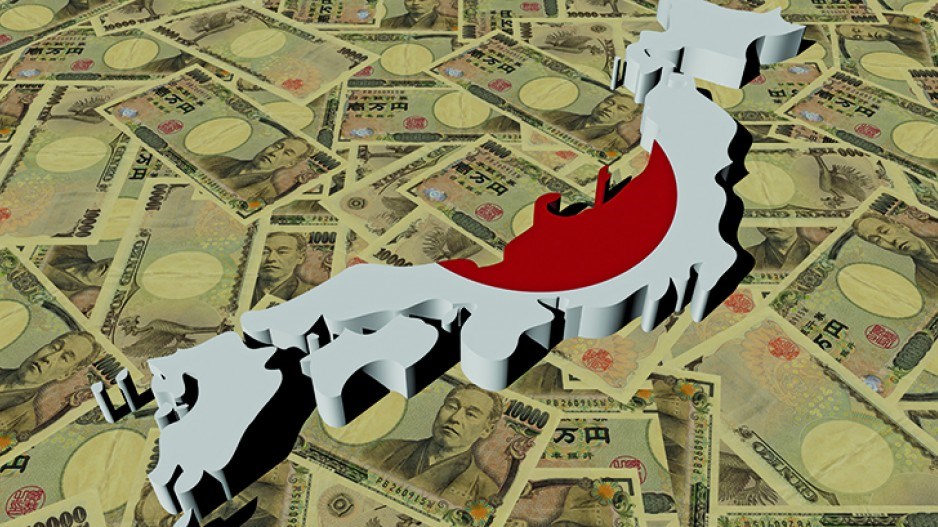It was a little over a year ago, in November 2017, that Canada’s relationship with Japan appeared to have struck a figurative iceberg in the late stages of Trans-Pacific Partnership (TPP) negotiations.
But 15 months after Canadian Prime Minister Justin Trudeau balked at moving ahead with the TPP in a meeting with Japanese counterpart Shinzo Abe, prompting some observers to warn of a dip in bilateral relations, Japanese officials have taken a decidedly warmer tone.
Tokyo is on a major charm offensive in B.C. and elsewhere in Canada, with think tanks, trade groups and even high school students taking part in a number of visits across the Pacific as Japan looks to deepen ties with its fellow TPP – now dubbed the Comprehensive and Progressive Agreement for Trans-Pacific Partnership (CPTPP) – member.
The rapid thaw in relations is mildly surprising but not unexpected given the current global situation, said Carlo Dade, director of the Trade & Investment Centre at the Canada West Foundation.
“In essence, Japan is giving Canada a second chance,” said Dade, who recently returned from Tokyo after accepting an invitation from Japan’s foreign ministry. “It’s something that we really don’t think about or are cognizant of, but Japan is stuck in the same place we are – with China and the U.S. also being their No. 1 and No. 2 trading partners. So they are facing many of the same pressures and predicaments as are we … and they are taking a harder look at their options for diversification.”
That picture differs dramatically from the one that followed the 2017 Trudeau-Abe meeting on the sidelines of the Asia-Pacific Economic Cooperation summit in Da Nang, Vietnam. At the time, Tokyo officials were so upset at Canada not being ready to move ahead with the TPP that there were talks of Japan moving forward with a “TPP-10” – a trade pact without Canada.
Since then, however, both Canada and Japan have ratified the deal, which came into effect at the end of last year. At the same time, while Japan has not had to deal with the kind of economic fallout that Canada has faced from the Meng Wanzhou arrest, the slowing Chinese economy and its tariff war with the United States helped drag down Japan’s exports by 8.4% in January – the largest percentage-point dip since late 2016.
Earlier this month, at an event promoting high school and college student exchanges between Canadian and Japanese youth, the Japanese consul general in Vancouver, Takashi Hatori, said the growing global trend towards protectionism is a major reason Tokyo is looking to like-minded partners.
“Last year was the 90th anniversary of the diplomatic relationship between Japan and Canada, and it was a good opportunity for us to emphasize the importance of that relationship,” Hatori said. “Now, economically speaking, in terms of the international trade issue, free trade is in danger globally, but at this moment Canada and Japan are maintaining the recognition of the importance of free trade. So I think that makes us good partners, especially considering the situation around the world.”
Dade said Japan’s interest in Canada isn’t limited to both countries’ inclusion in the CPTPP, noting Tokyo’s continued interest in Canadian liquefied natural gas (LNG). Other interest areas include wood pellets, alternative energy, oilsands and infrastructure investment.
“They’ve lost hundreds of millions of dollars on liquid natural gas, but they still want Canadian LNG as a bulwark against overdependence on the gulf, and they just don’t trust the Americans,” Dade said. “They have this ‘We love the Americans to death, but we won’t trust them’ view, and the current American behaviour is reinforcing their historic [views].
“Canada is viewed as a frustrating jurisdiction to get something, but as opposed to the U.S., that frustration seems safer.”
Hatori said there’s one more area Tokyo is keen on improving – the cultural, people-to-people ties on which much of the economic relationship will be built. That’s why Japan continues to push initiatives such as the high school exchange Kakehashi program in association with the Asia Pacific Foundation of Canada. The program this year saw 13 students from Richmond’s H.J. Cambie Secondary School visit Japan for 10 days.
A group of students from Osaka University is visiting Vancouver as part of the program, Hatori said.
“It is not necessary to spend one, two or three years in Japan to start thinking about and being interested in Japanese culture,” he said.
H.J. Cambie principal Rob Laing agreed, saying the trip has left his students indelibly changed despite its limited length.
“For this group of students to be able to have that experience is a memory they will forever look back upon. It will always shape who they are.”




